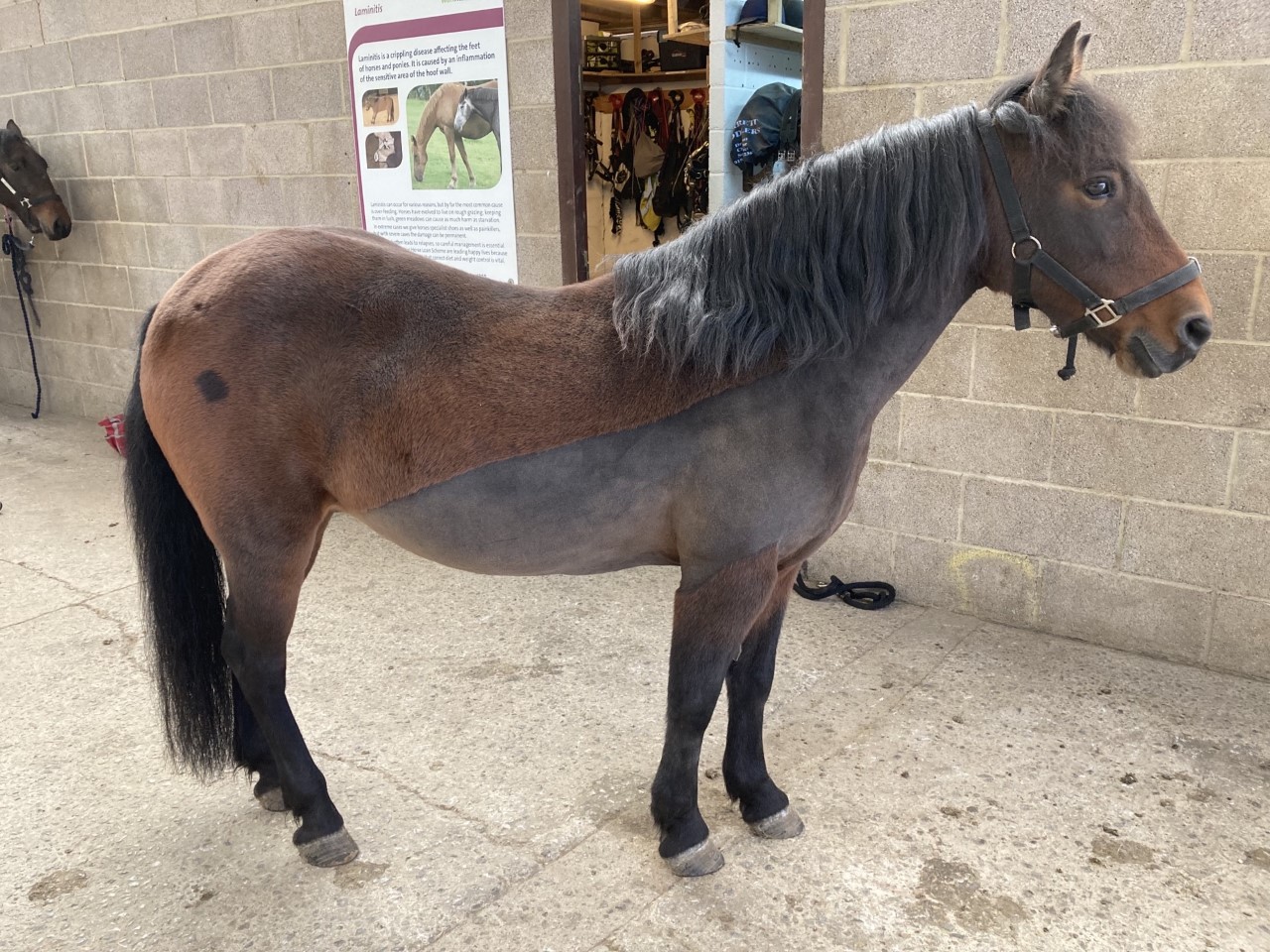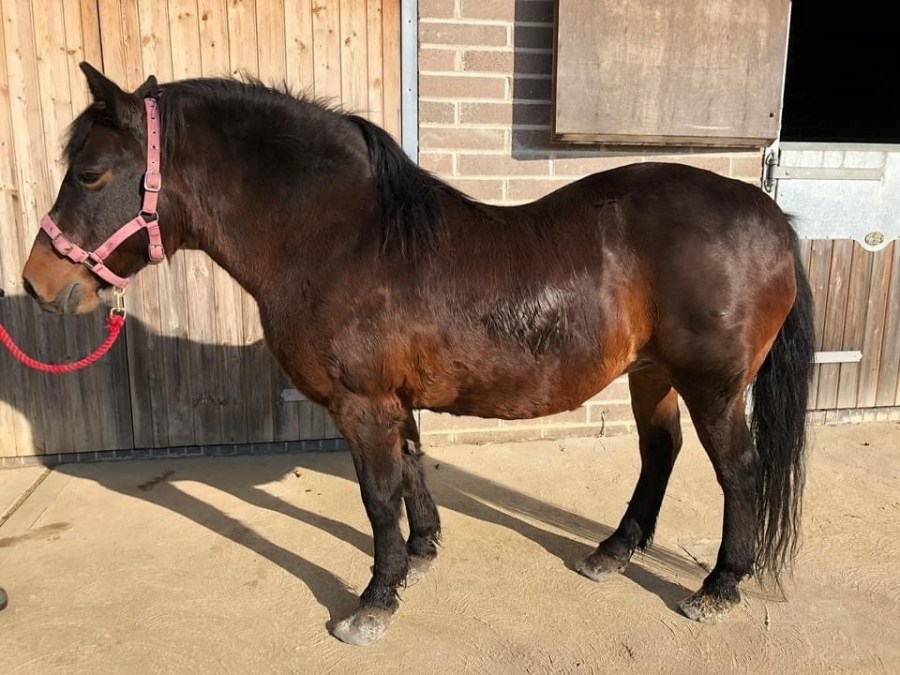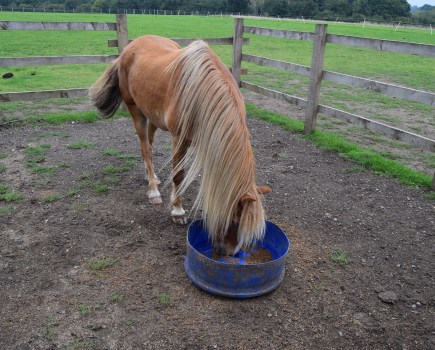World Horse Welfare has shared advice to owners following the rescue of a very overweight pony with laminitis.
Fifteen-year-old Sophie came into Glenda Spooner Farm, World Horse Welfare’s Rescue and Rehoming Centre in Somerset at the end of 2020.
The 12hh mare’s feet were in a poor condition and she had laminitis. Due to the condition of her feet she had not been able to move easily and this lead to her gaining weight and having mobility issues.

Sophie following her rehabilitation
Sophie was on stableyard rest for months as she was losing weight, having farrier treatment and regaining mobility. When the farrier becoming more satisfied with her feet she began her programme with a physio.
The programme started with massages on Sophie’s hamstrings to loosen them up as well as in-hand walking to correct her choppy stride that adapted due to her weight and feet issues.
The physio went on to include stretches and pole work, as well as teaching Sophie how to walk, trot and canter on the lunge. Sophie can now jump on the lunge and enjoys a loose schooling.
Once her weight started to drop she was allowed turnout, but with restricted grazing.
Sophie is now at a more suitable weight, having lost 100kg, and has been rehomed and is “a very sweet natured girl who loves all types of fuss”.
Managing weight
The charity shared advice for managing horses’ weight:
- Find out if your horse is overweight
It is impossible to tell by eye how much fat a horse is carrying. Feel for fat in specific areas to check condition, see video below.
-
- Check your feed
Ask an expert whether you are feeding your horse appropriately. Also, try to make treats the exception rather than the rule. - Don’t crash diet
Horses must have a steady supply of food to keep them healthy, so you need to find ways to reduce the calories without cutting down the quantity. - Control grass intake
Most leisure horses get more calories than they need from grass alone. In many cases it may be necessary to restrict their grass intake in some way, although additional vitamins and minerals will still be required. - Don’t be tempted to feed for more ‘oomph’
A high energy feed is also high in calories. Feeding an overweight horse more calories won’t give it more energy for work, but it will create more fat. Think about reducing their calorie intake so they lose weight and build up fitness to give them more energy. - Walk more
A brisk walk or steady trot will burn more fat than faster work such as canter. Find ways to build more walking into your horse’s day. - Consider if your horse needs a rug
Remember that horses already have waterproof coats and their own central heating systems – digesting fibre generates heat and this helps to keep the horse warm from the inside out. If your horse is overweight consider whether it could go without a rug or if a lighter weight one would be more suitable. - Remember every horse is different
Don’t be tempted to feed or rug your horse just because others do. Consider what your horse needs and remember that it might be different to what other horses need, even if they’re of a similar type. - Monitor your horse
Horses can put on weight very quickly so fat scoring and weight taping your horse fortnightly will help you spot any changes more quickly than you could by eye.
- Check your feed









